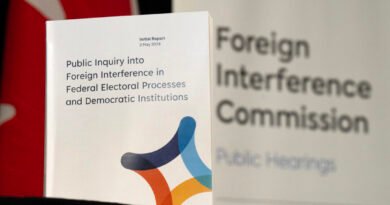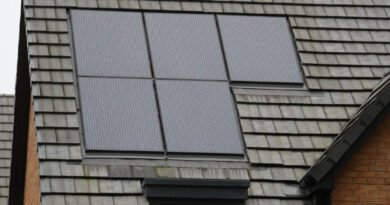Ministers Stand by Tax Relief for Businesses Importing Chinese Components Despite Tariff Implementation
Federal cabinet ministers are defending the government’s decision to allow Canadian businesses tax relief on Chinese goods that were just hit with tariffs this month over concerns about the regime’s unfair trade practices.
Asked whether the measure was implemented at the request of major auto companies like Volkswagen and Stellantis, which have received government funding to build EV battery plants in Canada, International Trade Minister Mary Ng said the exemption will give industries time to adapt to changes in the supply chain.
“I think that you would agree that listening to Canadian supply chain partners is really important,” Ng said. “Some companies could be impacted directly as a result of these tariffs. And if companies are impacted by these tariffs—small and medium-sized companies—then there should be a remission order process to what we can help them.”

A Volkswagen logo on the back of one of the automaker’s ID.4 electric vehicles at Fully Charged Live, an electric vehicle (EV), renewable and clean energy, and urban mobility exhibition, in Vancouver on Sept. 8, 2023. THE CANADIAN PRESS/Darryl Dyck
Conservative MP Rick Perkins posed a similar question to Innovation Minister François-Philippe Champagne. Perkins said he recently met with Volkswagen executives who reported difficulties sourcing critical minerals to manufacture EV batteries in Canada and said they relied on China for the materials.
“Can you explain to me if that’s the reason why, a month after your government imposed tariffs on Chinese-made EVs, you’ve provided a way for companies to actually get around them with the remission order?” Perkins asked.
Champagne rejected the suggestion, saying he had spoken with the automakers and they did not raise the exemption issue.
“It is quite standard when you have tariffs that are imposed, that you have what you call remission order exemption to support our small and medium-sized businesses in very exceptional cases,” the minister said.
The Epoch Times contacted both Volkswagen and Stellantis for comment but did not hear back by publication time.
Sourcing Critical Minerals
“You are making the assumption that we will keep buying [at the same order of] magnitude to 2035,” said Ng, adding the government incentives will allow Canada to extract and process those critical minerals and share them with partners like the United States, Australia, Korea, and Japan.
Williams cited recent concerns raised by BMW CEO Oliver Zipse about the feasibility of a similar emissions target in the European Union. Zipse said a ban on gas vehicles by 2035 is “no longer realistic” due to current market dynamics and pointed out risks related to the EU’s reliance on Chinese EV battery manufacturers.
“A correction” of the 100 percent EV target for 2035 “as part of a comprehensive CO2-reduction package would also afford European OEMs [original equipment manufacturers] less reliance on China for batteries,” he said.

Ontario Premier Doug Ford, Umicore CEO Mathias Miedreich, and Innovation, Science and Industry Minister François-Philippe Champagne make their way past heavy equipment to a ceremonial groundbreaking ceremony in Millhaven, Ont., on Oct. 16, 2023. The Canadian Press/Adrian Wyld





